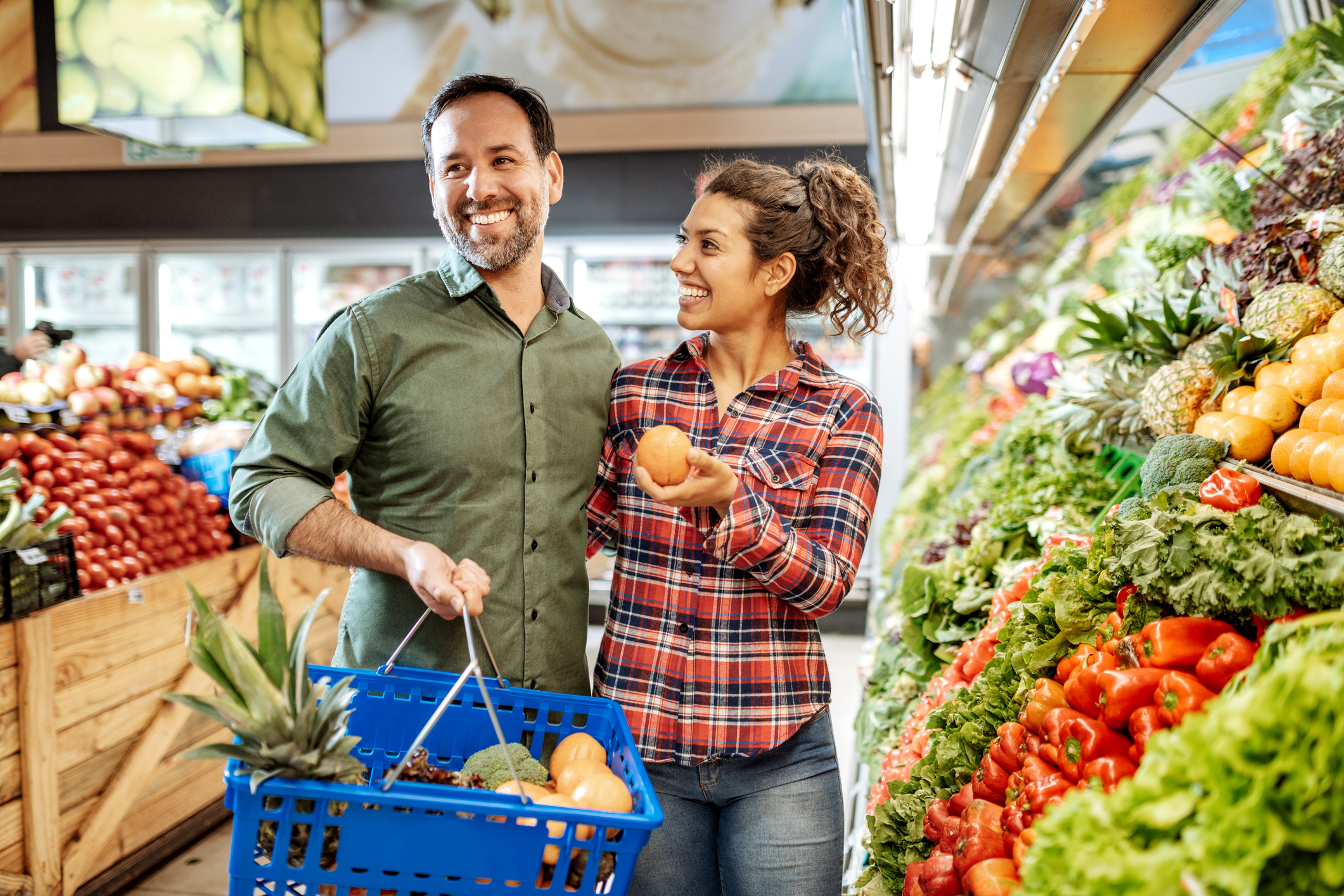8 of the Best Ways to Save Money on Groceries

How much of your monthly budget goes toward food? Many experts agree a good budget percentage is around 10-15% of your annual income, which includes dining out.
Regardless of what your monthly allotment is, you probably have felt the struggle of sticking to it. The cost of groceries has gone up 2.8 percent over the past year, along with just about every other consumer good and utility. And, unfortunately, the cost of food is only predicted to get worse due to inflation, supply chain issues, and consumer demand since the beginning of the pandemic.
Although you can't control inflation and the costs of items you need and want, you can learn to incorporate some tips and tricks into your grocery shopping trips and when cooking at home to help stick to your budget.
Save a little dough and stay on budget by incorporating these 8 money-saving grocery tips.
Use grocery apps
These days, tons of grocery stores and retail chains have their own apps. That means you no longer have to rifle through all the store ads to find the best deals and compare prices. Or, try a price comparison app such as like Flipp, Basket, or Grocery King to search for the best deals, make your grocery list, "clip" coupons and connect your reward cards.
Bring a list
It's easy to get sidetracked at the store and purchase things you may not need. If you make a list and follow it, then you'll be less likely to overspend.
Stick to a grocery budget
If your budget only allows for $150 a week at the grocery, then that's all you should try to spend. To make it easier to keep track of what you're spending as you go, use a calculator. If you start to reach that allotted amount before you're done, look in your cart and see if there's anything you can put back or swap out for a cheaper brand. Soon, tallying up what you're spending will become an old habit.
Purchase in bulk
Buying groceries in larger quantities means you'll be paying less per unit than you would if you only purchased one or two of the item. By buying in bulk, you'll save money on each use of that product. (For example, every time you cook a cup of rice from a 20-lb bag.) Even if you're only saving 10 cents every day, that adds up to $36.50 saved on that one product every year.
One trap to watch out for when buying in bulk though is to only buy what you'll actually eat. Don't purchase a 30 cans of canned salmon if you don't even like salmon, for example.
Also, the opposite is true too, of buying in bulk: Just because you have a lot of it doesn't mean you should use it more than normal. For example, don't use paper towels non-stop just because you have a ton of them. Using more doesn't equal money saving.
Meal plan
Plan your meals for the week on Sundays (or another day of the week that works best for you.) Planning out your meals can simply mean one meal a day or only a couple days a week. Do this by taking stock of your fridge and pantry to see what ingredients you already have that you can work with, then write down the ingredients you'll need to make other meals for the rest of the week and only buy those items at the grocery store. And, of course, bring that list and stick to it.
Consider buying more frozen foods
Don't discount frozen foods for their great taste and nutritional value. Experts have found no real difference in the nutrient content in frozen produce versus fresh, so why not go frozen? Plus, frozen fruits and veggies are often much less expensive than fresh.
Take advantage of rewards programs
Almost every major grocery store chain now offers some kind of reward or loyalty program. Even though it may seem like a pain to sign up for one more program or carry one more card, it's worth it to reap the rewards, discounts, and other benefits the grocery stores offer. Many coupons are only available digitally on your rewards cards. In addition, some loyalty programs offer members-only benefits for using their rewards programs, like discounts on fuel (another money-saving bonus).
Prep your own food
All that pre-cut, bagged, and washed lettuce and other produce is so much more convenient than purchasing a head of romaine, it's true! But it's also more expensive. The same goes for other pre-cut veggies and fruits, pre-cut and -cooked packages of chicken breasts, and any other pre-made foods. Take a few extra minutes to wash and prep your own food and save lots of money in the process.
Sticking to a grocery budget isn't fun, but saving money is! All it takes is a little ingenuity and planning and all those money-saving results will make it worth the effort.
Want more money-saving tips and tricks? Read more at our Finance Academy.
